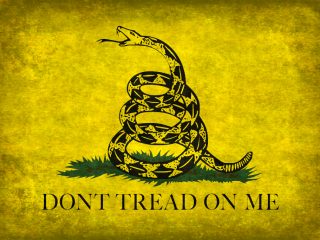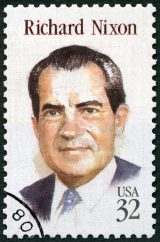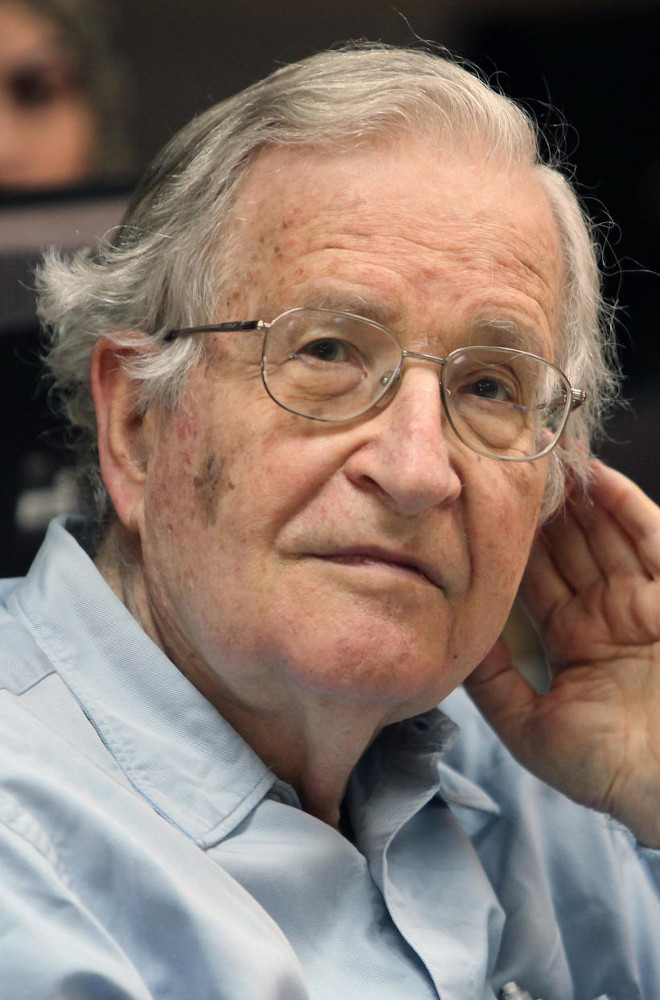 Libertarianism is a political view, philosophy, and movement that strongly steers toward individual freedom. The core principle of all Libertarians is freedom and obtaining the rights to that freedom.
Libertarianism is a political view, philosophy, and movement that strongly steers toward individual freedom. The core principle of all Libertarians is freedom and obtaining the rights to that freedom.
What this means is the Libertarians act strongly when it comes to maximizing autonomy, they strive for the freedom of choice, individualism, free association, while endorsing strong rights for all of this, including private property.
History of Libertarianism
To be exactly sure of when this political philosophy was born would be difficult to achieve. However, traces of its origins have been found that date even as way back as ancient Chinese times during the life of Lao Tzu.
However, modern Libertarian movements began during the 17th century and it was first recorded to be in England. Then, during the 18th century, this movement spread and flourished in Europe and North America. From there on, many Libertarian ideas came to be but that’s only a fraction of what you can find out in the following Libertarianism books review.
Best Books on Libertarianism
| Photo | Title | Rating | Length | Buy |
|---|---|---|---|---|

|
For a New Liberty | 9.96/10 | 419 Pages | Check Price On Amazon |

|
The Libertarian Mind | 9.58/10 | 432 Pages | Check Price On Amazon |

|
The Road to Serfdom | 9.84/10 | 140 Pages | Check Price On Amazon |

|
Don't Hurt People and Don't Take Their Stuff | 9.66/10 | 272 Pages | Check Price On Amazon |

|
Liberty Defined | 9.94/10 | 544 Pages | Check Price On Amazon |
For a New Liberty by Murray N. Rothbard
 Theoretical Philosophy of Libertarianism
Theoretical Philosophy of Libertarianism
For a New Liberty: The Libertarian Manifesto appeared in 1973, and is one of the best libertarian philosophy books as it immediately created an entire movement steered towards attempting to crush the political monopoly. It is a book that exemplifies the theoretical philosophy of libertarianism, by pointing out the destructive and violent nature of the existence of a government.
The author, Murray N. Rothbard, describes libertarianism from its very beginning and explains its philosophy and the incorporations of its ideology in establishing free markets, personal liberty, and property rights.
If Governments Didn’t Exist
It begins by introducing fragments of American history, stating that the revolution of 1776 was the most libertarian revolution of any. Rothbard presents his entire system of thought on the matter, showing that the only way peace, prosperity, and freedom of all people can be achieved, is if governments didn’t exist.
For a New Liberty is one of the best pieces of libertarian literature as it successfully combined ideology, theory, politics, history, and strategy, giving the entire libertarian movement an intellectual consciousness. The book is both informative and challenging, and it features the characteristic and clear writing style for which Rothbard is famous. He put a lifetime of research and intellectual energy into the composition of this writing piece, which actually resulted in the creation of a classic.
The Libertarian Mind by David Boaz
 The Governmental Threat
The Governmental Threat
The Libertarian Mind is an updated and improved version of David Boaz’s book Libertarianism: A Primer. It has been regarded as one of the best books about libertarianism as it unites history, philosophy, economics, and law, and helps bring to life an important political thought.
Boaz has updated this work with lots of new information about the overall ‘governmental threat’ and sheds a light on the policies that caused America’s financial crisis. His writing style is clear which makes it easier for the reader to understand all the topics involved in this compelling book.
To Be a Free Individual
Libertarianism is a philosophy that is concerned, in general, with personal and economic freedom and is deeply rooted in the history of Western civilization. Boaz writes in detail about the American law, the philosophy of natural rights and freedom, and presents to the reader the main idea of libertarianism – that you’re born as a free individual, and not your state’s subject.
The Libertarian Mind, as well as the book that precedes it, had a huge impact on the growth of the libertarian movement and is also one of the best introductory books on libertarianism. It contains essential information about the basic principles of the movement and is a book that should take place on every freedom-lover’s bookshelf.
The Road to Serfdom by Friedrich A. Hayek
 Defending Liberalism
Defending Liberalism
Originally published in England in 1944, and since then, sold in more than two million copies, The Road to Serfdom is one of the best-selling books on libertarianism ever written. It is a classic work concerning political philosophy, history, and economics that have inspired, as well as angered, a lot of politicians and scholars for over half a century.
The author of the book, Friedrich A. Hayek, is famous for his defense of liberalism and free-market capitalism and is even considered by a number of people as one of the most important economists and political philosophers of the 20th century.
How to Form a Great Society
It is a short, but comprehensive book which the main idea is to portray the issue between liberty and authority. After its release, it has immediately gained the attention of the public but was also seen as a heretical work, as it attacked the existence of governments.
Hayek stated that the power governments have endangers the freedom of people, and introduced his idea that a government should exist only to offer protection to people in times of war, leading to the books’ conclusion that adopting the “classic liberalism” is the only way to successfully form a free society. The Road to Serfdom is a classic piece of writing that should definitely be added to your libertarian reading list.
Don’t Hurt People and Don’t Take Their Stuff by Matt Kibbe
 The New Libertarian Movement
The New Libertarian Movement
Written by the bestselling New York Times author, Matt Kibbe, Don’t Hurt People and Don’t Take Their Stuff is a manifesto of the new libertarian movement, in which the author preaches individual liberty and gives advice on what you have to do to maintain your freedom.
This is one of the best books on libertarianism as it consists of plenty of compelling stories and highlights a number of problems related to the existence of government. It is written in a simple language, which makes it easy to read, but also very informative- ideal for someone who’s unfamiliar with the whole movement idea.
Taking Action Instead of Complaining
In this book, Kibbe shares the story about the formation of his libertarian philosophy. The book is slightly autobiographical at the beginning, but further along, it goes into detail about the alteration of the government’s initial purpose and defends the principles on which America was created.
By explaining the way governments work, it makes their power to intimidate and manipulate the people obvious to the reader, as well as the way they are spying on them. The last chapter is all about the manifesto segment. In it, Kibbe makes it clear that you can’t just complain about the whole political situation, but do something to incorporate into the society the libertarian vision.
Liberty Defined by Ron Paul
 A World Facing a Losing Battle
A World Facing a Losing Battle
Ron Paul, an American congressman and #1 New York Times bestselling author, in his book Liberty Defined, states his thoughts and arguments on an intriguing topic – personal freedom. Rated as one of the most popular books on libertarianism, this publication is a comprehensive guide on 50 of the most important issues our society faces, according to the author.
The book is well written and easy to digest, but also very bold in discussing some controversial topics. Paul succeeds in presenting his thoughts and ideas, thus shedding a light on a world that is in a process of destruction.
Making Libertarianism Global
The author’s opinion on the topic is that to believe in liberty means not to believe in any social and economic outcome. It is to let individuals have complete freedom of their actions and choices, whether the result of their actions is success or a failure.
According to Ron, a government should exist only to increase personal liberty, forming a society that completely relies on the morality of its people. Paul is consistent in his logic and his position about each of the 50 topics this book concerns. His hope is to give a re-birth of the Founding Fathers’ vision, but his message is universal and can be applied to all world’s societies, not just in America.
Atlas Shrugged by Ayn Rand
 Something New About Libertarianism
Something New About Libertarianism
Atlas Shrugged is, at the same time, a manifesto and a mystery story, following the life stories of several titans of the industrial age. It is a book about a philosophical revolution – the rebirth of a man’s spirit. The author, Ayn Rand, employs her own philosophy about objectivism, giving the novel an entirely new voice and political perspective.
This book honors the individual and the potential for greatness that lies inside all people. Atlas Shrugged belongs to the genre of left-libertarian books, and it passionately presents new, radical ideas that the author truly believes in.
How to Improve Humanity
Ayn Rand teaches you to use your mind, rather than your heart; it teaches you to think, rather than expect to get the reward of someone else who does all the thinking. Rand’s idea is that if everyone did that, the world would be a perfect place to live in, and succeeds in her goal to get the readers to reconsider their behavior.
Her chief philosophy is that there are two types of people existing: the Creators – the ones who use the power of their intelligence and will to improve humanity, and the others, who basically feed on the Creators, doing nothing by themselves. What is striking about her book is that the incorporated philosophy is relevant today as much as it was in her time.
The Ethics of Liberty by Murray N. Rothbard
 The Modern Form of Libertarianism
The Modern Form of Libertarianism
Recently, the libertarian movement and its philosophy have had a great impact on both national and economic development. The Ethics of Liberty is a libertarian economics book that has a reputation of being one of the most thorough in exposing libertarian philosophical ideals. The author, Murray N. Rothbard, was an American historian, economist, and law theorist who played a key role in defining the modern form of libertarianism.
One of the major themes this book is concerned about is self-ownership, but it also deals with the non-aggression principle and gives the reader an idea of how a free society would function successfully.
Personal Property and Individual Freedom
Rothbard presents his ideas clearly and uses carefully chosen arguments to support and justify his views and position. The basic notions he uses in his book are the concepts of personal property and individual freedom, successfully reaching to the roots of your personal distinctions of whether something is right or wrong. This is one of the top libertarianism books, in which he introduces his anarcho-capitalist economic system as the key to establishing social order based on personal freedom.
All in all, the book is well written and can be a quick and easy read, while at the same time, challenging your personal views and positions; perfect for those who seek more information and practical use of libertarian principles and philosophy.
Capitalism and Freedom by Milton Friedman
 Establishing Economic and Political Freedom
Establishing Economic and Political Freedom
Capitalism and Freedom is a timeless classic that has been declared as one of the “hundred most influential books” by the Times Literary Supplement. Selling over a million copies since it was first released, and translated into eighteen languages, this book is one of the best libertarianism books out there and is certainly becoming more and more influential as time goes by.
Written by Milton Friedman, one of the most influential economists of the 20th century, in which he states his distinguished opinion on economic philosophy, saying that competitive capitalism is crucial in achieving economic freedom, and is by any means necessary for establishing political freedom.
Free Markets and Limited Governments
This is a very well-written piece, with a writing style that is both confident and passionate, condensed into just under 250 pages. It consists of 12 chapters, plus an introduction and conclusion, and summarizes the author’s opinion on the existence of free markets and his idea of minimal government involvement in people’s freedom of choice.
Friedman shows the reader that true liberalism has to be determined, and presents the book’s main idea that people should have their freedom in choosing what’s best for them. His arguments are powerful and make it seem impossible to argue with, making his work one of the best for advocating the ideas of both free markets and limited governments.
Anarchy, State, and Utopia by Robert Nozick
 Words Worthy of a National Book Award
Words Worthy of a National Book Award
Anarchy, State, and Utopia is an exceptional book in which the author, Robert Nozick questions the most popularly held political and social positions-liberal, socialist and conservative. It is one of the best books criticizing libertarianism that has been translated into eleven languages and has won the 1975 U.S. National Book Award in the category of Philosophy and Religion.
The author’s ideas are original and his arguments easily grasp readers’ attention, serving to provoke their thinking, and asking them to reconsider their position. The book is well-written and easily understandable, which makes it one of the best books to learn about libertarianism as well.
The Three Sides Libertarianism
This book is a really heavy volume on libertarian political philosophy, as well as one of the most unusual ones concerning this topic. It is divided into three parts: the first one talks about all the aspects of the minimalist state; the second engages in giving arguments for expanded powers beyond minimalist; the final part reveals how absurd utopian visions are if they don’t consider people’s differences.
Nozick writes this piece in an attempt to justify the existence of a minimal state through a moral perspective, assaulting other political philosophies, such as anarchy and anarchism, striving to create an atmosphere of intellectual honesty.
Libertarianism: A Primer by David Boaz
 Understanding the Libertarian Perspective
Understanding the Libertarian Perspective
Libertarianism, as a movement, is not just a political philosophy; it was the idea upon which the Founding Fathers established the United States of America. Millions of Americans have recently set out to rediscover the libertarianism philosophy, noticing that the government has become so powerful that they fear it threatens their rights and freedom.
Libertarianism: A Primer is one of the best rated books on libertarianism in which the author, David Boaz, offers guidance to understanding the libertarian perspective, going back to its roots and implying possible solutions to contemporary political dilemmas.
Libertarian Political Principles
This book serves as a great example of what the Libertarian political principles are and gives a detailed background on what they stand for, who were the people that played a key role in the movement, and which ideas that resulted from it have already been adopted in the world. It’s among the best ones from our Libertarianism books review that easily introduces many to the world of Libertarianism.
This book preaches the idea that you should be free to make your own decisions as long as it doesn’t get in the way of other’s individual rights, and the concluding sections give you a chance to determine your own positions and beliefs. It is a must-read for both newbies and those who are already familiar with the principles of libertarianism, and it gives you a chance to appreciate one of the most hopeful movements of our time.
Michael Englert
Michael is a graduate of cultural studies and history. He enjoys a good bottle of wine and (surprise, surprise) reading. As a small-town librarian, he is currently relishing the silence and peaceful atmosphere that is prevailing.





